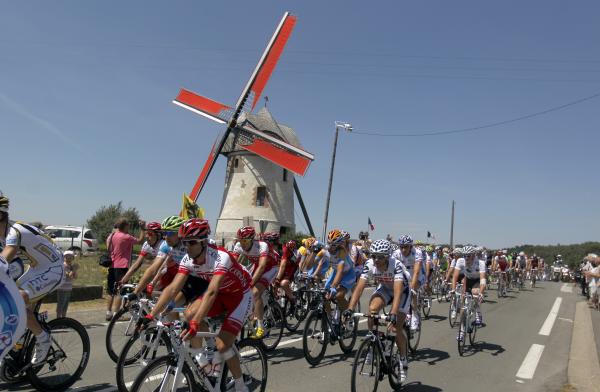UCI defend the creation of an index of suspicion
International Riders Association to take legal action against L’Equipe

The UCI has moved to turn the embarrassing leak of the so-called index of suspicion into an example of how the use of the biological passport system is making the fight against doping become increasingly more effective.
The French newspaper L’Equipe published details of the list drawn up on the eve of the 2010 Tour de France on the 198 riders due to compete in the sport’s biggest race.
It is based on the rider’s biological passport and the final blood tests they underwent before the Grand Depart in Rotterdam. Each rider is given a score of between zero and ten. According to L’Equipe, the large majority of riders received scores of four or less but a score of from six to ten apparently indicated that the possibility of doping was "overwhelming". Some of the riders located to the top of list have already been singled out by the biological passport and evaluated by the panel of nine experts, even if no procedure was opened.
Carlos Barredo and Yaroslav Popovych were the only riders with a score of ten. Denis Menchov scored nine, while 2010 Tour de France winner Alberto Contador was given a five, while Lance Armstrong was ranked as a four in his final Tour de France. The RadioShack team had the highest combined index of suspicion as a team.
“The UCI’s Anti-Doping Service then draws up a “testing plan” on the basis of the results of these tests and the athletes’ biological passports. This testing plan defines the priorities, frequency and features of the tests to be performed during the race,” the UCI statement reads.
"The proportion of riders who cross the red line has reduced"
The UCI played down the value list as an “assessment of the appropriateness of testing a specific rider, the list does not justify any suspicion or condemnation.” But then went on to claim it can be held up as an example of how cycling is trying to fight doping.
Get The Leadout Newsletter
The latest race content, interviews, features, reviews and expert buying guides, direct to your inbox!
“Acknowledged as a “unique document, unprecedented in any sport” this list “reveals a reality that is very remote from the notion that ‘they all resort to doping’ and puts paid to the idea of organised team doping.”
“Thanks to the “tremendous work done by the UCI in recent years (…) the proportion of riders who cross the red line has reduced.”
“Of course this does not in any way imply a denial of the existence of the problem. It does however demonstrate the fact that the UCI’s anti-doping services have the situation under control and that their monitoring – via the biological passport in particular – will become increasingly effective.”
The UCI has been asked to explain how the leak occurred by the Professional Cyclists International Association (CPA), who is threatening legal action against L’Equipe. Riders are furious about the leak and many have vented their anger via Twitter.
The UCI concluded by describing the leak as “highly irresponsible and unacceptable” and said it “consult WADA in order to launch an in-depth investigation of the matter.”

Stephen is one of the most experienced member of the Cyclingnews team, having reported on professional cycling since 1994. He has been Head of News at Cyclingnews since 2022, before which he held the position of European editor since 2012 and previously worked for Reuters, Shift Active Media, and CyclingWeekly, among other publications.